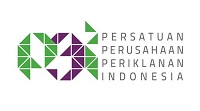Formation of entrepreneurial values through communication in entrepreneurial interactions in coastal areas
Abstract
This study examines how entrepreneurial values are fostered through interaction and communication between local and migrant entrepreneurs in coastal tourism areas. The study emphasizes the critical role of a shared understanding of these values, highlighting the need to promote local economic growth and develop a sustainable entrepreneurial ecosystem. Research objectives: This study aims to identify the factors that drive entrepreneurial values among local and migrant entrepreneurs in coastal tourism areas. Methods: A qualitative research approach was used, and data was collected through interviews and observations. The study focused on micro, small, and medium enterprises (MSMEs) operating in Pangandaran. The research shows that essential attributes of business success - such as grit, new ideas, and a willingness to stand on one’s own two feet - come from life experiences and the give-and-take within the community and culture. Both local entrepreneurs and travelers can use social connections and circles as tools for growth and support. At the heart of this discovery? These sociable traits are passed down through different groups, while language skills are spread across many places. Together, they create resilient people skilled in business and entrepreneurship. This Recommendation focuses on increasing collaboration between entrepreneurs through mentoring programs, workshops, and networking events to encourage the exchange of knowledge and experience. These initiatives are expected to increase innovation, competitiveness, and business sustainability in coastal tourism, strengthening the entrepreneurial ecosystem.
Keywords
Full Text:
PDFReferences
Bajari, A. (2015). Metode penelitian komunikasi; Prosedur, tren dan etika (2nd ed.). Simbiosa Rekatama.
Chakraborty, S., Thompson, J. C., & Yehoue, E. B. (2016). The culture of entrepreneurship. Journal of Economic Theory, 163, 288–317. https://doi.org/10.1016/j.jet.2015.12.007
Chan, K. Y., Uy, M. A., Chernyshenko, O. S., Ho, M. H. R., & Sam, Y. L. (2015). Personality and entrepreneurial, professional, and leadership motivations. Personality and Individual Differences, 77, 161–166. https://doi.org/10.1016/j.paid.2014.12.063
Chand, M., & Ghorbani, M. (2011). National culture, networks, and ethnic entrepreneurship: A comparison of the Indian and Chinese immigrants in the US. International Business Review, 20(6), 593–606. https://doi.org/10.1016/j.ibusrev.2011.02.009
Cochran, T. C. (1964). The entrepreneur in economic change. Behavioral Science, 9(2), 111–119. https://doi.org/10.1002/bs.3830090204
Colin Mason, B., & Brown, R. (2013). Entrepreneurial ecosystems and growth oriented entrepreneurship. Better Policies For Better Lives, 1–38.
Creswell, J. W., & Creswell, J. D. (2018). Research Design Qualitative, Quantitative, and Mixed Methods Approaches (Fifth Edit). Sage Publications, Inc.
Creswell, J. W., & Poth, C. N. (2018). Qualitative Inquiry & Research Design (4th ed., Vol. 4). SAGE Publications, Inc.
Curry, J. A., Donker, H., & Michel, P. (2016). Social entrepreneurship and indigenous people. Journal of Co-Operative Organization and Management, 4(2), 108–115. https://doi.org/10.1016/j.jcom.2016.09.002
Dhahri, S., & Omri, A. (2018). Entrepreneurship Contribution to the Three Pillars of Sustainable Development: What Does the Evidence Really Say? World Development, 106, 64–77. https://doi.org/10.1016/j.worlddev.2018.01.008
Discua Cruz, A., Hamilton, E., & Jack, S. L. (2012). Understanding entrepreneurial cultures in family businesses: A study of family entrepreneurial teams in Honduras. Journal of Family Business Strategy, 3(3), 147–161. https://doi.org/10.1016/j.jfbs.2012.05.002
Doepke, M., & Zilibotti, F. (2014). Culture, Entrepreneurship, and Growth. In Handbook of Economic Growth (Vol. 2, pp. 1–48). Elsevier B.V. https://doi.org/10.1016/B978-0-444-53538-2.00001-0
Duman, L., Bedük, A., Köylüoğlu, A. S., & Ay, K. (2015). Entrepreneurship Culture at SMEs: A Case Study in Konya. Procedia - Social and Behavioral Sciences, 207, 492–501. https://doi.org/10.1016/j.sbspro.2015.10.119
Fernández-Salinero, C., & de la Riva, B. (2014). Entrepreneurial Mentality and Culture of Entrepreneurship. Procedia - Social and Behavioral Sciences, 139, 137–143. https://doi.org/10.1016/j.sbspro.2014.08.044
Gurău, C., & Dana, L. P. (2018). Environmentally-driven community entrepreneurship: Mapping the link between the natural environment, local community, and entrepreneurship. Technological Forecasting and Social Change, 129(November), 221–231. https://doi.org/10.1016/j.techfore.2017.11.023
Hafiar, H., Subekti, P., Setianti, Y., & Komariah., K. (2019). The first step towards the independence of the visually impaired in entrepreneurship. International Journal of Entrepreneurship, 23(Special Issues), 1–7.
Harini, C., & Handayani. (2019). Pemasaran Kewirausahaan Melalui E-Commerce Untuk Meningkatkan Kinerja Umkm. 13(2).
Kraus, S., Vonmetz, K., Bullini Orlandi, L., Zardini, A., & Rossignoli, C. (2023). Digital entrepreneurship: The role of entrepreneurial orientation and digitalization for disruptive innovation. Technological Forecasting and Social Change, 193. https://doi.org/10.1016/j.techfore.2023.122638
Liu, Z., Xiao, Y., Jiang, S., & Hu, S. (2021). Social entrepreneurs' personal network, resource bricolage, and relation strength. Management Decision, 59(11), 2774–2791. https://doi.org/10.1108/MD-05-2019-0674
Malecki, E. J. (2018). Entrepreneurs, networks, and economic development: A review of recent research. In Advances in Entrepreneurship, Firm Emergence and Growth (Vol. 20, pp. 71–116). Emerald Group Publishing Ltd. https://doi.org/10.1108/S1074-754020180000020010
Malik, A., Onyema, E. M., Dalal, S., Lilhore, U. K., Anand, D., Sharma, A., & Simaiya, S. (2023). Forecasting students’ adaptability in online entrepreneurship education using modified ensemble machine learning model. Array, 19, 100303. https://doi.org/10.1016/j.array.2023.100303
Manzano-García, G., & Ayala-Calvo, J. C. (2020). Entrepreneurial orientation: Its relationship with the entrepreneur’s subjective success in SMEs. Sustainability (Switzerland), 12(11). https://doi.org/10.3390/su12114547
Moleong, L. J. (2018). Metodologi Penelitian Kualitatif, cet. In XI. Bandung: PT Remaja Rosdakarya.
Parwez, S. (2017). Community-based entrepreneurship: evidences from a retail case study. Journal of Innovation and Entrepreneurship, 6(1), 14. https://doi.org/10.1186/s13731-017-0074-z
Putri, N. E., Hakim, N., & Yamin, M. (2016). Ecological Footprint and Biocapacity Analysis for Flooding Prevention in South Sumatra. Jurnal Mimbar, 32(1), 58–64.
Randerson, K., Dossena, G., & Fayolle, A. (2016). The futures of family business: Family entrepreneurship. In Futures (Vol. 75, pp. 36–43). Elsevier Ltd. https://doi.org/10.1016/j.futures.2015.10.008
Seaman, C., Bent, R., & Unis, A. (2016). Family entrepreneurship culture, entrepreneurial intent, futures and foresight in Scottish Pakistani communities. Futures, 75, 83–91. https://doi.org/10.1016/j.futures.2015.09.006
Shepherd, D. A., Saade, F. P., & Wincent, J. (2020). How to circumvent adversity? Refugee-entrepreneurs’ resilience in the face of substantial and persistent adversity. Journal of Business Venturing, 35(4). https://doi.org/10.1016/j.jbusvent.2019.06.001
Shu, R., Ren, S., & Zheng, Y. (2018). Building networks into discovery: The link between entrepreneur network capability and entrepreneurial opportunity discovery. Journal of Business Research, 85, 197–208. https://doi.org/10.1016/j.jbusres.2017.12.048
Subekti, P., Hafiar, H., Prastowo, F. A., & Yusup, P. M. (2022). The development of tourism potentials of Pangandaran Beach to improve entrepreneurship. Res Militaris, 12(2), 1877–1884.
Subekti, P., Setianti, Y., Hafiar, H., Bakti, I., & Yusup, P. M. (2019). Environmental Entrepreneurship Education: Case Study Of Community Empowerment Programs In Bandung Barat District, Indonesia. International Journal of Entrepreneurship, 23(2), 1939–4675.
Swanson, K. K., & DeVereaux, C. (2017). A theoretical framework for sustaining culture: Culturally sustainable entrepreneurship. Annals of Tourism Research, 62, 78–88. https://doi.org/10.1016/j.annals.2016.12.003
Vial, V., & Hanoteau, J. (2015). Returns to Micro-Entrepreneurship in an Emerging Economy: A Quantile Study of Entrepreneurial Indonesian Households’ Welfare. World Development, 74, 142–157. https://doi.org/10.1016/j.worlddev.2015.04.008
Woodside, A. G., Bernal, P. M., & Coduras, A. (2016). The general theory of culture, entrepreneurship, innovation, and quality-of-life: Comparing nurturing versus thwarting enterprise start-ups in BRIC, Denmark, Germany, and the United States. Industrial Marketing Management, 53, 136–159. https://doi.org/10.1016/j.indmarman.2015.11.003
Worokinasih, S., Nuzula, N., & Damayanti, C. (2021). Youth Entrepreneur (1st ed., Vol. 1). Media Nusantara Creative.
Zahra, S. A., Gedajlovic, E., Neubaum, D. O., & Shulman, J. M. (2009). A typology of social entrepreneurs: Motives, search processes, and ethical challenges. Journal of Business Venturing, 24(5), 519–532. https://doi.org/10.1016/j.jbusvent.2008.04.007
DOI: https://doi.org/10.24198/jmk.v8i2.53529
Refbacks
- There are currently no refbacks.
Copyright (c) 2024 The Author(s)

This work is licensed under a Creative Commons Attribution-NonCommercial-ShareAlike 4.0 International License.
Jurnal Manajemen Komunikasi Indexed by:
Jurnal Manajemen Komunikasi
Fakultas Ilmu Komunikasi, Universitas Padjadjaran
Postgraduate Building, 2nd Floor, Faculty of Communication Sciences, Padjadjaran University
Jl. Ir. Soekarno Km. 21, Jatinangor, West Java 45363, Indonesia
Phone: +6288229381552 (WhatsApp Only)
Phone: +62227796954
Fax: +62227794122
Email: jurnal.manajemen.komunikasi@unpad.ac.id

This work is licensed under a Creative Commons Attribution-NonCommercial-ShareAlike 4.0 International License.
Jurnal Manajemen Komunikasi Supervised by:












21.png)

